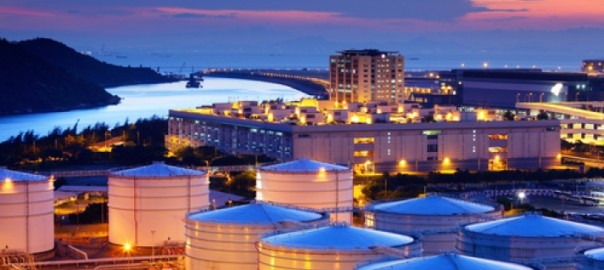The regulation of the gas industry in Brazil is peculiar, since the activities within the gas supply chain are regulated both in federal and state levels by general provisions of the Federal Constitution, as well as by a number of different federal and state laws.
The Federal Constitution of Brazil, enacted in 1988 and amended by Constitutional Amendment No. 05/1995, sets forth a clear division of power between the Federal Government and the state governments concerning the activities developed within the gas industry.
Pursuant to articles 20 and 176 of the Federal Constitution, gas reserves located within the Brazilian territory, including continental shelf, territorial sea and exclusive economic areas, are considered assets of the Federal Government. Therefore, article 177 of the Federal Constitution grants to the Federal Government the monopoly on the upstream activities, such as prospection, importation, exploitation and production of gas, as well as the transportation of gas along the Brazilian territory. These are considered economic activities that can be performed by both state-owned companies and private companies, under federal authorization. The hiring of state-owned or private companies for the execution of these activities is regulated by Federal Law No. 9,478/1997 (the Petroleum Law) and Federal Law 11,909/2009 (the Gas Law). In practice, most of the upstream activities in the gas industry are still carried out by the state-owned company Petrobras, because, prior to the Constitutional Amendment No. 05/1995, Petrobras was the exclusive representative of the Federal Government for the execution of its monopoly on the gas industry.
The regulatory agencies vested with power to regulate gas activities on the federal level are: (i) the Ministry of Mines and Energy (MME), responsible for planning the use of natural gas; (ii) the National Energy Policy Council (CNPE), responsible for fostering rational use of Brazil’s energy resources, ensuring proper functioning of the national fuels inventories system, reviewing energy matrixes for different regions of Brazil and establishing guidelines; and (iii) the National Agency of Oil, Gas and Biofuels (ANP), in charge of regulating, contracting and supervising all the economic activities related to the gas industry.
On the other hand, article 25, section second, of the Federal Constitution, as amended by Constitutional Amendment No. 05/1995, grants to the states the prerogative on the local distribution of piped gas to final users within the territory of each state. Unlike the upstream activities, the distribution of piped gas is considered a public service, subject to a different number of rules and regulations that govern the rendering and the concession of public services in Brazil, such as Federal Law No. 8,987/1995 (the General Law of Concessions) and Federal Law No. 8.666/93 (which sets out the general rules for bidding procedures). Moreover, each state is entitled to enact its own set of rules regulating the piped gas distribution, as well as to create its own state regulatory agencies. Consequently, each state regulatory agency is responsible for the regulation of the distribution of piped gas within its respective territory.
Traditionally, scholars justify this division of competences set forth by the Federal Constitution based on the interests underlying each step of the supply chain. The economic activities of prospection, exploitation and production, importation and transportation along the country’s territory are driven by the public interest of the entire population. Such activities seek the satisfaction of collective needs, providing all Brazilian citizens and residents with adequate and diversified energy resources. On the other hand, the public services of local distribution of piped gas are driven by the individual interest of each of the final users of piped gas, seeking to provide them with a specific volume of gas to satisfy their individualistic needs.
In view of this legal framework, the interaction among different players along the gas supply chain may become somewhat complex, since their activities may be regulated by different laws and agencies.
A good example to illustrate this complexity is a controversy that arose between the State of São Paulo and a joint venture formed by Petrobras and White Martins on the interpretation of articles 177 and 25, section 2 of Brazil’s Federal Constitution, which is considered Brazil’s leading case in the gas sector.
In 2006, Petrobras and White Martins formed a joint venture to produce and sell liquefied natural gas (LNG). Under their agreement, Petrobras would supply natural piped gas to an industrial facility held by White Martins in the City of Paulínia, State of São Paulo, which would then produce LNG out of the natural gas, through an industrial process called liquefaction, which involves cooling natural gas to extremely low temperatures to shrink its volume 600 times, making it easier to store and ship it to final users. On Petrobras’ view, the direct supply of piped gas to White Martins would qualify as transportation of gas (economic activity under the federal monopoly, regulated by federal law), since White Martins would not burn or use the gas as a final consumer, but liquefy it and sell it to third parties.
The State of São Paulo had a different view on the same issue. According to the State of São Paulo Regulatory Agency for Energy and Gas (CSPE), White Martins should qualify as a local industrial user of piped gas and, consequently, should purchase gas from the State concessionaire, Comgás. On CSPE’s view, Petrobras would be prevented from supplying natural piped gas directly to White Martins’ industrial facilities, since this activity should be qualified as distribution of piped gas to a final consumer, being under the prerogative of the State of São Paulo and its concessionaries, as per article 25, section 2 of the Federal Constitution. Therefore, CSPE enacted the Ordinance No. 397/2005, prohibiting LNG producers from purchasing piped gas from any distributors other than the State concessionaries.
Petrobras and White Martins filed a lawsuit before the Federal Court of São Paulo seeking the suspension of the State’s prohibition. A preliminary injunction was granted in favor of the Plaintiffs suspending the Ordinance No. 397/2005, on the basis that the direct supply of natural piped gas from Petrobras to White Martins should be qualified as transportation of gas, being therefore subject only to federal regulation.
Both the Federal and State Regulatory Agencies, as well as the State of São Paulo and the Federal Government, joined the dispute on opposites sides, asserting different interpretations of the constitutional provisions that govern the division of competences in the gas industry. The case was then remitted to the Brazil’s Supreme Court (Claim No.4210/2006), which has exclusive jurisdiction to hear disputes among government entities on opposite sides.
The Supreme Court has not come to a final decision yet. However, the Court has so far ruled in favor of the State of São Paulo and the State Regulatory Agency, granting a preliminary injunction recognizing the states’ power to regulate over the supply of natural piped gas to industrial facilities that aim to use it as raw material for producing liquefied gas. In fact, the preliminary injunction, rendered by Presiding Justice Cármen Lúcia, found that the supply of gas directly from Petrobras to White Martins seems to be a local service of distribution of piped and, therefore, the State concessionaire, Comgás, is the only one allowed to provide it.
This decision was the first ruling by Brazil’s Supreme Court regarding the division of competence between the Federal Government and the States on gas matters, being thus of capital importance for the gas sector.



